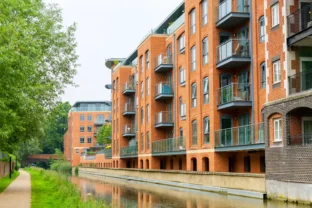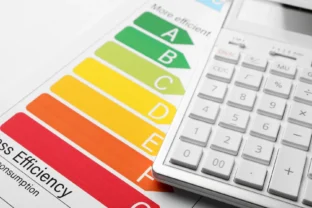The Cost of Moving House
20 February 2024 • 6 min read

See what our customers have to say about us
Moving house is a significant life event that comes with excitement and anticipation, but it’s crucial to be well-prepared for the various costs involved. From legal fees to removal companies and everything in between, understanding the costs of moving is essential for a smooth transition.
Whether you’re a first-time homebuyer or this is your fifth house move, having a comprehensive list of all the costs is always a good idea.
The average cost of moving house in 2024 can range from £9,000 to nearly £12,000, depending on where you buy, how much the house costs, and whether you’re a first-time buyer.
The cost of buying a house
Stamp Duty
Stamp duty is a tax levied by the government on property transactions above £250,000. However, first-time buyers don’t pay stamp duty on the first £425,000.
Homebuyers must pay SDLT to HMRC within 30 days of contract completion, and your solicitor will usually fulfil this.
Stamp duty rates are as follows:
- 0% on the first £250,000
- 5% between £250,001 and £925,000
- 10% between £925,001 and £1.5 million
- 12% over 1.5 million
Property Surveys
Surveys assess the condition of the property, helping identify potential issues. Costs can vary from £300 to £1,500+, depending on the type of survey you want and the property’s location. Property surveys are essential for finding any problems in a prospective house and are necessary when buying with a mortgage.
RICS Home Survey Level 1 (Condition Report) is used for standard properties and new homes and is less expensive than RICS Home Survey Level 3 (Building Survey), which is used for older, larger, unusual, or poorly maintained properties. RICS Home Survey Level 2 (Homebuyer Report) is for standard properties in reasonable condition, usually costing between £400 and £1000.
Deposit
When buying a house, a 10% deposit of the property’s value is paid to secure the property at the exchange of contracts.
This is typically the biggest obstacle for first-time buyers wanting to get on the property ladder. Some mortgage lenders now accept a 5% deposit or no deposit at all, but the bigger the deposit you have, the better the mortgage rates you’ll likely get.
If you’re moving house, you’ll be able to use the equity from your previous home to go towards your new home’s deposit. However, if your new house is much more expensive and the deposit is more than what you receive from your buyers, you’ll have to make up the difference.
Legal Fees
Solicitors or conveyancers handle the legal aspects of property transactions. The average conveyancing fee for a freehold property is £1,370. For leasehold properties, homebuyers should expect to pay more; this is because the paperwork involved in a lease is extensive and can take longer to check.
Legal fees cover conveyancing, searches, and other legal requirements. Prices can vary, so it’s wise to obtain several quotes. Many conveyancers charge a set fee based on the property’s value.
You’ll also have to pay for disbursements, which are third-party charges for services like searches; these can cost up to £700.
Valuation
Your mortgage provider will require a RICS Valuation Report to confirm that you are paying the right amount for the property. You won’t need a valuation only if one is provided as part of your home survey.
The average valuation fee is £320.
Insurance
Building insurance and contents insurance protect your property and belongings. Homebuyer protection insurance is a worthwhile investment, with one in three property purchases falling through.
The cost of selling a house
Estate Agent Fees
If you’re selling a property, estate agent fees may be your highest cost. You’ll typically have to pay 1.42%, including VAT, on the property’s price.
Energy Performance Certificate (EPC)
The law requires that you have an Energy Performance Certificate (EPC) for your property before selling it.
EPCs cost between £60 and £120, depending on your local assessor’s prices.
General moving house costs
Removals Companies
If you’re a first-time buyer, you may not have a need for removals and can rely on the help of friends and family to move you into your property.
If you do have a lot of furniture to move, the cost of removal services can vary depending on the size of the property, the volume of items, the distance, and additional services like packing.
Mail Redirect
When moving to a new house, you must inform companies of your new address. You’ll also need to redirect your post for some time to ensure you still receive any important documents.
Redirecting post costs are as follows:
- £34 for three months
- £48 for six months
- £69 for twelve months
Clean Exit Etiquette for Rented Property
Leaving a rented property in good condition is essential for a smooth exit. There will likely be a clause in your tenancy agreement that says you must leave the property in the same state as when you moved in to get your deposit back.
You could put the hours in to clean the property yourself, which would save on costs; however, if it doesn’t meet the landlord’s standards, they may ask you to contribute to bringing the property up to scratch.
Alternatively, you could hire a cleaning company, take photos of standards, and keep any receipts as proof.
Utilities and Council Tax
Before you officially move, check which services are available at your new property and start getting quotes. Setting up services like broadband can often take a while, as there’s usually a wait to get connected. Starting the process as soon as you’ve got your completion date is a good idea.
You can check how much council tax you’ll be expected to pay on your new local council’s website. Moving house involves a complex web of expenses; knowing these costs in advance can help you budget effectively. Remember to obtain quotes from multiple service providers and plan for unexpected costs to ensure a smooth and stress-free transition to your new home. Get in touch to speak to a member of our team, or get a free quote here. Remember, our team is here to assist you every step of the way, ensuring that your legal needs are met with professionalism and expertise. Happy moving!
You might also like
The leasehold landscape in the UK is on the brink of a significant transformation, ...
In order to sell or rent any property, with only a few exceptions, an ...

